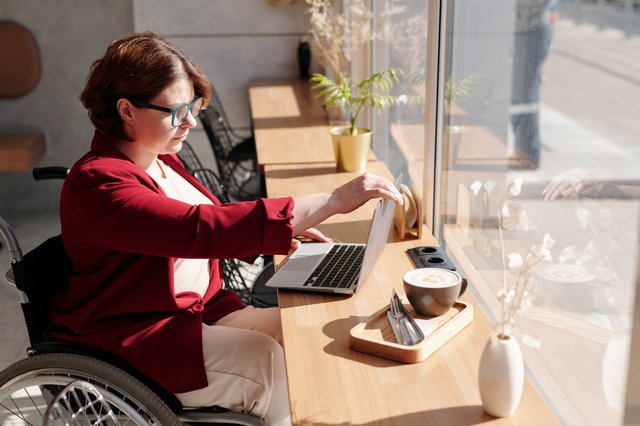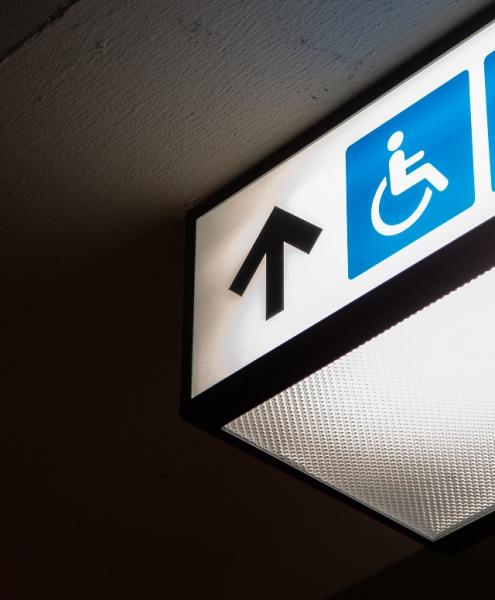Report recommends changes to realise disability rights, including addressing abuse
Tue 28 Jul 2020
The Independent Monitoring Mechanism (IMM) has published their third report on New Zealand's implementation of the United Nations Convention on the Rights of Persons with Disabilities (UNCRPD).

The report, Making Disability Rights Real, Whakatūturu Ngā Tika Hauātanga (2020), calls for government action to ensure disabled people are able to participate equally in society.
The introduction of the report states:
"Many disabled people are experiencing poverty, exclusion and lack of autonomy. Eliminating these huge disparities requires a quantum leap. We need to move from compensating for an inaccessible society — founded on notions of disability as a deficit — to recognising disabled people as equal rights holders, by actively working to create fully accessible communities. The IMM urges the Government to mandate a systemic approach to explicitly integrating the Disability Convention into domestic law, and to apply the appropriate resource in order to make this a reality. The recommendations in this report provide clear navigation to some critical starting points. We trust that they will serve as a springboard to accelerate meaningful advances for all disabled New Zealanders."
The report explores the experiences of disabled Māori and Pacific peoples, examines each of the 33 Articles of the Convention, summarises key themes for action and outlines priority recommendations.
Two of the Convention's articles relate to disabled people's experiences of family and sexual violence (including child abuse) and other forms of violence: Article 6 (Women with disabilities) and Article 16 (Freedom from exploitation, violence and abuse). In both areas, the report highlights issues and key recommendations.
Article 6: Women with disabilities
The report notes there is little New Zealand research about disabled women and girls in general, or their experiences of violence. New Zealand Police do not collect disaggregated data on sexual and other violent crime towards disabled women. Disabled women have identified violence as a top concern in consultations by the Human Rights Commission. The report highlights that disabled women and girls want and expect to have their voice and concerns heard by decision-makers, but indicate it is a struggle to have their concerns acknowledged or acted upon. The report notes "If disabled women are not an integral part of the design and development of initiatives to address gender-based disadvantages, there is a risk of leaving disabled women behind."
The report also notes:
"There is little recognition in the New Zealand legislative or policy framework of the intersectional discrimination and cumulative risk that disabled women may face. As noted in the Government’s response to the Disability Committee’s List of Issues, some Cabinet papers are required to consider disability impacts. However, there is no requirement for disability perspectives to include an intersection with gender or any other characteristic, such as recognising indigenous peoples."
Recommendations related to Article 6 include:
"13. Actively consult disabled women (and girls where appropriate) in legislative and policy development, decision-making, programme monitoring, and violence prevention measures.
14. Strengthen intersectional approaches that integrate disability perspectives within gender equity initiatives and gender perspectives within disability initiatives, including the collection and analysis of data.
15. In partnership with disabled women, conduct accessibility audits of violence prevention and response services (including those provided by third parties) to ensure that they are inclusive and accessible, and staff have access to appropriate training.
16. Ensure that all women’s health and sexual and reproductive services (including those provided by third parties) are provided in accessible facilities and information on these services is provided in accessible formats.
17. Institute temporary special measures (affirmative action) aimed at accelerating equitable participation of disabled women in employment."
Article 16: Freedom from exploitation, violence and abuse
Article 16 requires governments to take all appropriate measures to protect disabled people from all forms of exploitation. This includes violence, abuse, and neglect related to a disabled person’s gender or age. This includes violence or abuse that occurs at home, in residential care, at work or in education settings. The report notes that "Government-funded anti-violence and abuse programmes have been, at best, slow to address issues of violence, abuse and neglect of disabled people and many of them do not have accessible information or premises."
The report notes that the Family Violence Act 2018 made some legislative changes to better protect disabled people from violence, neglect and abuse, such as clarifying that the meaning of a "family relationship" can include people in a carer/care-recipient relationship. The Act also recognises family violence as including the withholding of care, aid, medicine, a device or support, or restricting access to employment or education. The report also notes "However, the Act does not make provision for the accommodation needs of disabled people when making protection orders, nor does it contain specific safeguarding measures to reduce family violence experienced by disabled people."
Recommendations under Article 16 include:
"44. Develop a range of initiatives to ensure that disabled people experience the same protection from domestic and other forms of violence as non-disabled people, and that agencies identify and appropriately respond to abuse and violence directed at disabled people, including by:
a. ensuring all government-funded domestic and anti-violence programmes include accessible material for disabled people;
b. increasing awareness of abuse experienced by disabled people and of the mechanisms to address it, and providing sustainable funding for disabled people–led organisations working in this area;
c. increasing resourcing for disabled people–led initiatives to ensure there are better systems of recognition, prevention and rapid response to abuse;
d. ensuring that data collection by the Police enables disaggregated data to be collected to allow for accurate recording and analysis of violence and abuse towards disabled people; and
e. ensuring people subject to compulsory detention on the basis of disability have ready access to trained advocates free of charge, and ensuring advocates cannot be prevented from visiting clients on demand to act as witnesses to situations and conditions."
Māori and Pacific peoples
The report includes an overview of disabled Māori and disabled Pacific peoples' experiences, and recommendations for change. The report notes that a lack of disaggregated data makes it difficult to report the experiences of disabled Māori and Pacific peoples in relation to the individual articles of the Disability Convention. It is the IMM's view that the human rights of tāngata whaikaha (disabled Māori) set out in the Disability Convention, United Nations Declaration of the Rights of Indigenous Peoples (UNDRIP) and Te Tiriti o Waitangi (Treaty of Waitangi) are not being fully realised.
The report notes that Pacific disabled peoples share many experiences with tāngata whaikaha, again noting poor health and social outcomes. Cultural differences and language barriers can prevent Pacific disabled people and their families from accessing health and support services, and that service providers may lack expertise and knowledge to meet the needs of Pacific disabled people.
The report is available in multiple formats from the Human Rights Commission.
The Independent Monitoring Mechanism (IMM) is made up of the Office of the Ombudsman, the Human Rights Commission and the Disabled People's Organisations' Coalition.
For more information about the Convention, see the Office for Disability Issues.
Related news
Australia’s National Research Organisation for Women’s Safety (ANROWS) has published a research report, Violence prevention and early intervention for mothers and children with disability: Building promising practice (2020).
Related media
Government repeals discriminatory law, Beehive media release, 05.08.2020
Image: Marcus Aurelius from Pexels




